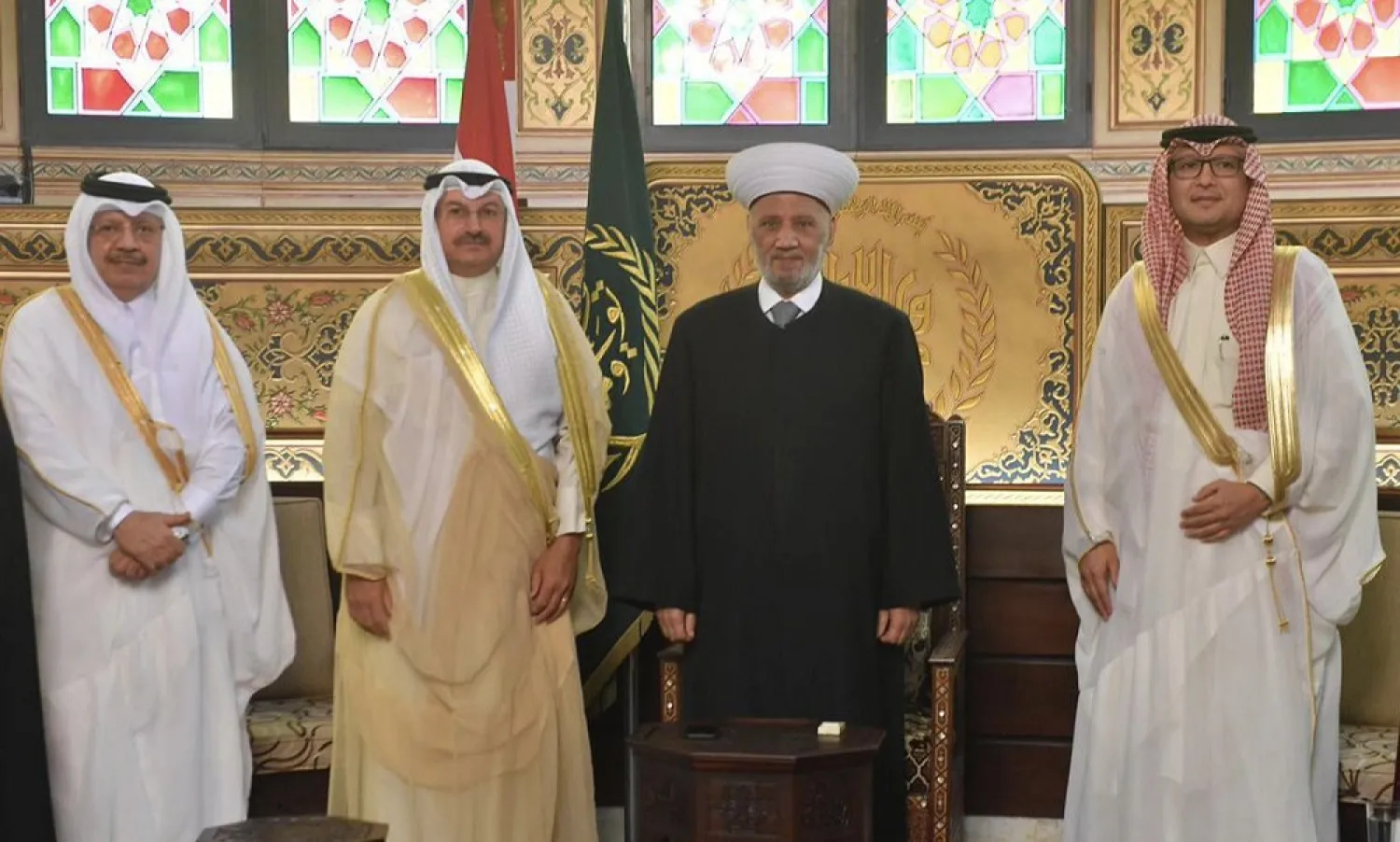Lebanon's Grand Mufti Sheikh Abdul Latif Derian compared on Thursday a boycott of the upcoming parliamentary elections to "surrender".
"We do not want to hand Lebanon over to the enemies of Arabism," he declared during a meeting with ambassadors of the Gulf Cooperation Council to Beirut.
The elections are set for Sunday.
"The elections and their victors will set Lebanon's path and its relations with its Arab brothers and friends," continued Derian.
The GCC delegation, which met Derian at Dar al-Fatwa in Beirut, included Saudi Ambassador to Lebanon Waleed Bukhari, Kuwaiti Ambassador Abdel Aal al-Qenai and Qatari Ambassador Ibrahim al-Sahlawi.
Qenai said after the meeting that the talks were an opportunity to discuss the situation in Lebanon and its ties with the Gulf.
"We expressed to the Grand Mufti our support for him and everything that falls in the interest of this brotherly country," he stressed.
A statement from Dar al-Fatwa said the gatherers hoped that the "elections would be transparent and that they would reflect the aspirations and hopes of the Lebanese people."
"A negative view of the elections does not build a nation, rather it paves the way for others to fill the vacuum and determine the Arab identity of Lebanon and its people," they warned.
"The ambassadors urge the Lebanese to prioritize their national interest above all else and to take part in the elections" so that figures "who should preserve Lebanon, its sovereignty, freedom, independence and territorial integrity are elected to office."
Derian, for his part, underscored the "excellent" fraternal relations shared between Lebanon and Gulf states and their wise leaderships.
"Lebanon is at a critical juncture that demands united ranks and the bolstering of Lebanese relations with the Gulf, fraternal Arab countries and friendly nations in way that will benefit Lebanon and the Lebanese people, who are suffering from the state's shortcomings in addressing their economic and living concerns," he continued.
Sunday's elections are a significant chapter in Lebanon's history, he declared.
"We have urged the people to take part, not to boycott the polls," he stated, adding that no official has called for a boycott.
"Elections are a religious and national duty that should not be underestimated. The victors would be chosen through the Lebanese people's free democratic will," said Derian.









